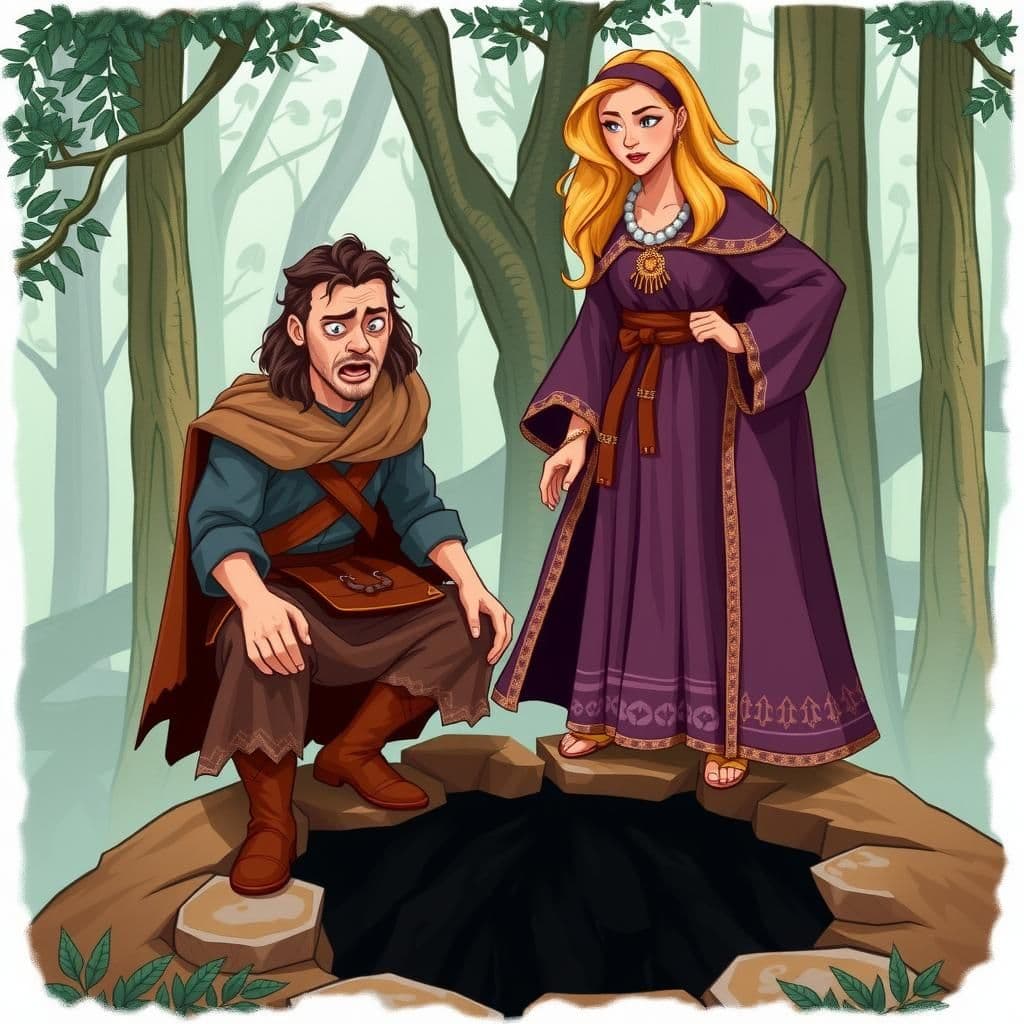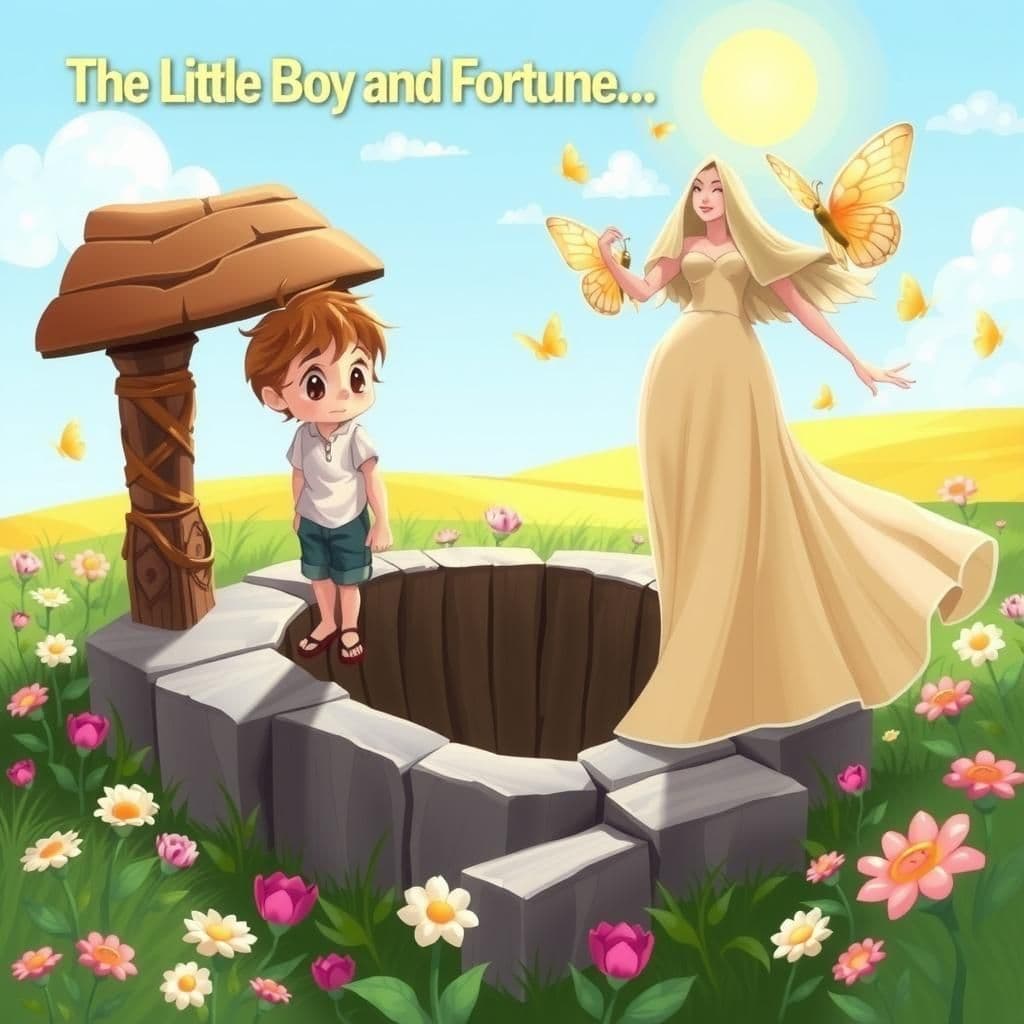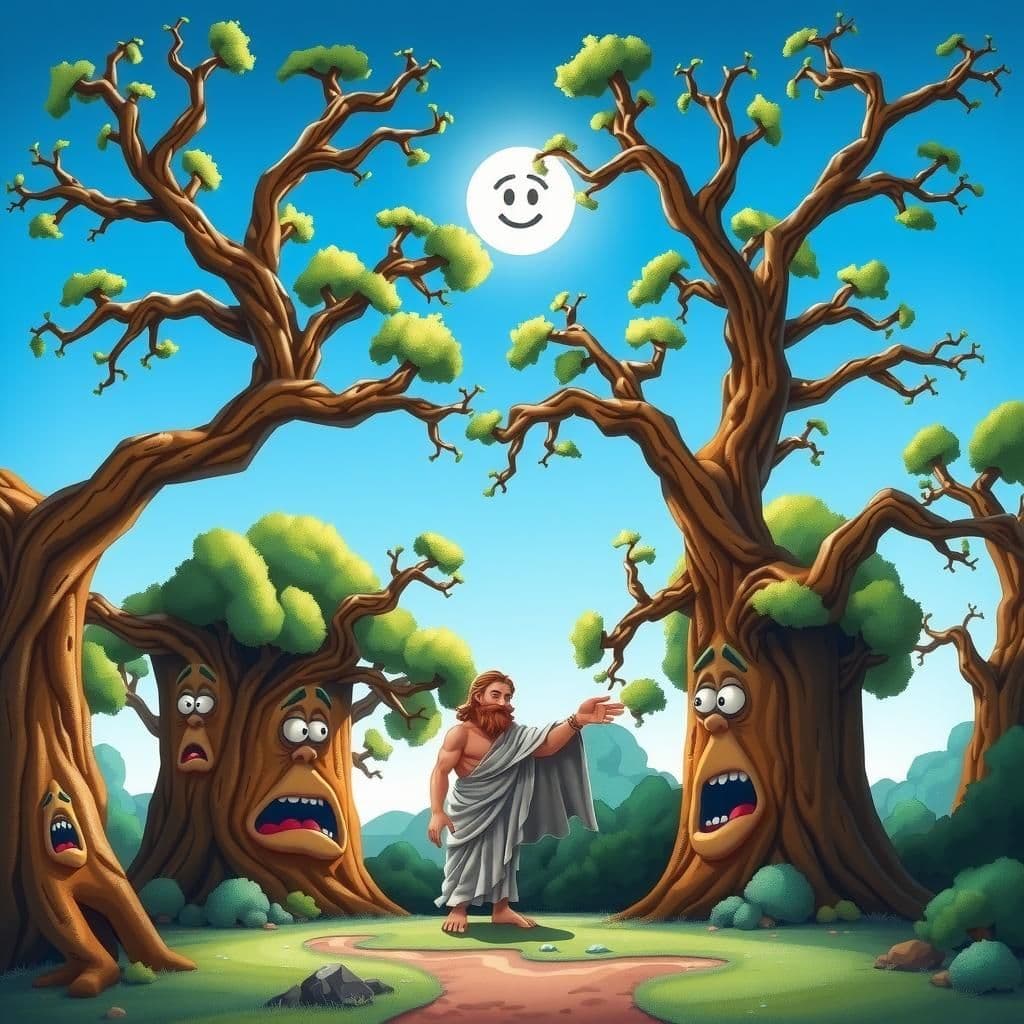The Traveler and Fortune
In "The Traveler and Fortune," a weary traveler on the brink of a deep well is awakened by Dame Fortune, who warns him that if he falls, people will unjustly blame her for his misfortune. This short and sweet moral story teaches young readers that individuals often hold the key to their own fate, rather than attributing their calamities to external forces, making it a valuable addition to short stories to learn morals and stories with moral lessons.

Reveal Moral
"The moral of the story is that individuals are often responsible for their own misfortunes, rather than attributing them to external forces like luck or fate."
You May Also Like

The Sportsman and the Squirrel
In this wisdom-packed moral story, a Sportsman, after wounding a Squirrel, chases it with a stick, claiming he wishes to end its suffering. The Squirrel, defiantly revealing the hypocrisy of the Sportsman's actions, asserts its desire to survive despite its pain. Overcome with shame, the Sportsman ultimately refrains from harming the Squirrel and walks away, highlighting the value-based moral that true compassion must align with understanding and respect for life.

The Little Boy and Fortune
In this inspirational short story with a moral, a weary little boy on the brink of a deep well is awakened by Dame Fortune, who warns him about the tendency of people to blame her for their misfortunes caused by their own foolishness. She emphasizes that each individual is ultimately the master of their own fate, highlighting a key lesson found in popular moral stories: personal responsibility is essential for avoiding calamity.

The Oaks and Jupiter
In "The Oaks and Jupiter," a classic moral story, the oaks lament their constant threat of being cut down, feeling burdened by life. Jupiter responds with a wise lesson, explaining that their own strength and usefulness as pillars for carpenters and farmers make them targets for the axe. This engaging moral tale highlights how our qualities can lead to both advantages and misfortunes, a theme often found in childhood stories with moral lessons.
Quick Facts
- Age Group
- adultkidschildrenstory for class 2story for class 3story for class 4story for class 5story for class 6story for class 7story for class 8
- Theme
- responsibilityfateself-awareness
- Characters
- The TravelerDame Fortune
Subscribe to Daily Stories
Get a new moral story in your inbox every day.